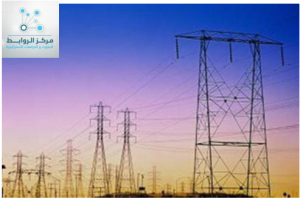Four days ago, the new package of US sanctions on Iran has come into force , which US President Donald Trump had reinstated after being lifted under a nuclear deal signed in 2015 on which it was reached between Iran on the one hand and the United States, France, Britain, Germany, China and Russia on the other. With the introduction of sanctions that have hit Iran’s oil and financial sectors, fears emerged that Iraq, which relies heavily on its eastern neighbor in electricity and consumer goods, may be a victim of the crisis. But Baghdad was able to get an exemption.
These political developments came to confirm the correctness of the information contained in a previous article published by the Rawabet Center for Research and Strategic Studies, entitled “Adil Abdul Mahdi and legacy of internal and external dilemmas.” The article pointed out in one of its paragraphs: “Iraq is trying to obtain an exception from the United States in the application of sanctions on Iran, as happened exactly with Jordan when it got that exception after the second Gulf War. “We granted Iraq an exemption to allow it to continue to pay the value of the import of electricity from Iran,” State Department Envoy to Iran Bryan Hawk said last Thursday. An Iraqi source told the «AFP» that Iraq received this exemption in return for commitments. “The US gave us a 45-day chance to find a solution to stop using oil and gas, but we told them that we need 4 years to depend on ourselves, or find an alternative.” Iraq got the exemption after negotiations between Iraqi and US officials, representatives of the White House and the US Treasury Department, and Iraqi government representatives held talks with US and Iranian officials for months to ensure that their fragile economy would not collapse due to rising tensions.
For his part, Prime Minister Adel Abdul-Mahdi said in a press statement that Baghdad is in talks with both sides to protect their interests, and Iraq is not part of the sanctions system, it first protect its interests and take into account all the interests of others. “The value of these non-hydrocarbon imports about $ 6 billion 2017, making Iran the second largest source of imported goods in Iraq. But perhaps the most important for 39 million people in Iraq, is their dependence on Iran for electricity.
“It seems that Iraq’s special exemption came under its own condition that determines how it will stop using Iranian electricity,” said Nusseibeh Younis, an adviser at the European Institute for Peace. “In order to get this exception, the Iraqis have presented a kind of road map,” she told AFP. And US companies may help to fill the vacuum left by Iran. In the last January, Iraq signed a memorandum of understanding with US energy company ( Orion ) to exploit gas in a southern oilfield and signed a memorandum with US company ( GE ) to reform the electricity sector after signing a similar deal with German company ( Siemens ) , .
Baghdad has strong ties with the United States and coordinates with it on security, politics and governance. But its economy is highly intertwined with Iran’s economy. Iraqi factories produce very few products following the international embargo imposed by the United States in the early 1990s and the 2003 invasion of Iraq. Instead, Iranian products are now invading markets ranging from canned food such as milk to carpets and cars. The value of these non-hydrocarbon imports about $ 6 billion in 2017, making Iran the second largest source of imported goods in Iraq, but the most important for 39 million people in Iraq is their dependence on Iran for electricity.
The lack of energy, which often leaves homes without electricity for up to 20 hours a day, is a major factor behind weeks of large protests in Iraq during the summer. To overcome this shortfall, Baghdad imports natural gas from Tehran to its plants, and directly buys 1300 Megawatts of Iranian electricity. This dependence is uncomfortable for the United States, which sought to reduce Tehran’s influence and re-impose sanctions on Iranian financial institutions, shipping lines, the energy sector and oil products.
Iraqi Studies Unit
Rawabet Center for Research and Strategic Studies

